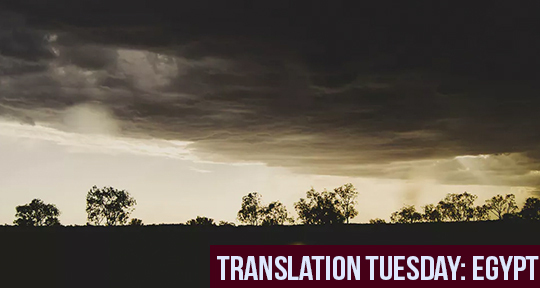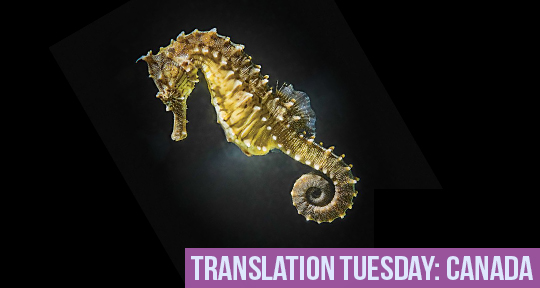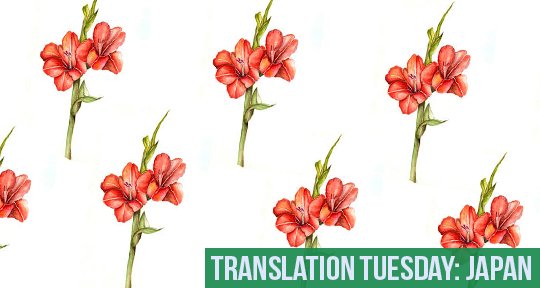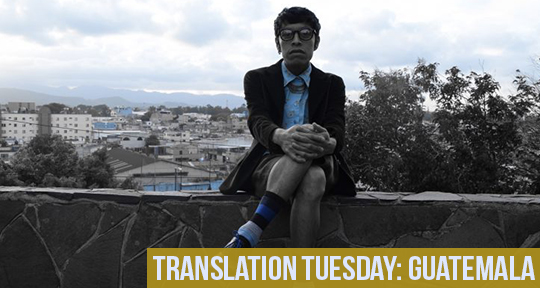This week’s Translation Tuesday features the work of Mohamed M. Farrag. The prose is short, succinct, and hits like a hammer—much like the vision of masculinity embodied in the story. Enigmatic messages, the codes that construct subjects along certain lines, flow freely between a boy and his grandfather. These messages transport generational models of masculine repression as they are passed down; in just a few lines, Farrag aptly demonstrates the ways in which the social codes that dictate behavior are transferred. However, the end of the story leaves us with a question: can the script of behavior be broken by reflection and release? Or is this too a planned movement, derived from what came before? Regardless, the emotions captured here are delivered with an uncanny availability: the rhythms that the translator pulls from the original present an ordinary scene that makes one feel as if the answer to some pressing, universal question is close at hand. But the true answer is only a choice: to show or to hide.
He sat beside his dying grandfather; a man known for his cruel heart. He’d never seen him cry. Gently, the grandfather caught his grandson’s hand. “Do you know, son, what my father told me when he saw me crying on the day of my mother’s death?”
“No.” The young boy shrugged.
He said, “Men don’t cry, whatever happens.” And then he wiped my tears. “When my wife died your mother was still young. Her death stung me, but I didn’t cry in front of her. I didn’t want her to fall apart. I kept my tears inside.” READ MORE…














